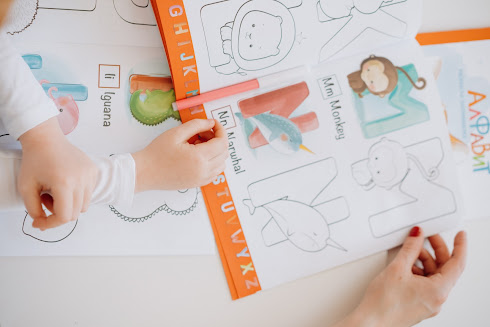There is a respectable amount of research that suggests that a Montessori-style private kindergarten--typically starting in daycare-- can be effective for certain outcomes compared to other teaching systems, but more research is needed to fully understand the impact of Montessori education compared to other systems. For now, here are 3 areas where Montessori seems to excel:
Executive Functioning
Several studies have found that Montessori kindergarten can improve children's executive functioning skills, such as working memory, self-regulation, and cognitive flexibility, compared to traditional education methods.
Academic Achievement
Some studies have found that Montessori students perform as well as or better than students in traditional education systems on academic achievement measures such as standardized tests.
Social and Emotional Development
Montessori education has been found to promote positive social behaviors and emotional development in children, such as increased empathy, cooperation, and emotional regulation.
The Parental Role
Additionally, the effectiveness of Montessori education may depend on the quality of implementation and teacher training, but the role of parents in the Montessori Method cannot be understated. To better illustrate parental roles, here are a few tips for incorporating Montessori into your home:
Communicate with the Teachers - Building a positive relationship with your child's Montessori teacher is key to ensuring your child's success. Take time to speak with your child's teacher regularly to stay informed about your child's progress, and share any concerns or questions you may have.
Trust the Process - The Montessori method is designed to promote independent learning and self-discovery, so it's important to trust the process and allow your child to learn at their own pace. Encourage your child to choose their own activities and pursue their interests, and resist the urge to intervene or control their learning experience.
Provide Consistency - Consistency is important for young children, and maintaining a routine can help them feel secure and confident. Make sure your child is getting enough rest, exercise, and healthy meals, and try to establish a consistent schedule for drop-off and pick-up.
Create a Supportive Environment - In addition to the Montessori daycare environment, it's important to create a supportive home environment that promotes learning and exploration. Provide your child with age-appropriate toys, books, and activities, and encourage them to explore the world around them.
Participate in the Community - Getting involved in your child's Montessori community can help you stay informed and connected. Attend school events and parent-teacher conferences, and consider volunteering or participating in fundraising efforts.
When parents, teachers, and students work together, the Montessori Method is a force to be reckoned with. It is well-known for producing children who are polite, capable, and who exhibit a strong sense of self-worth and personal responsibility.

